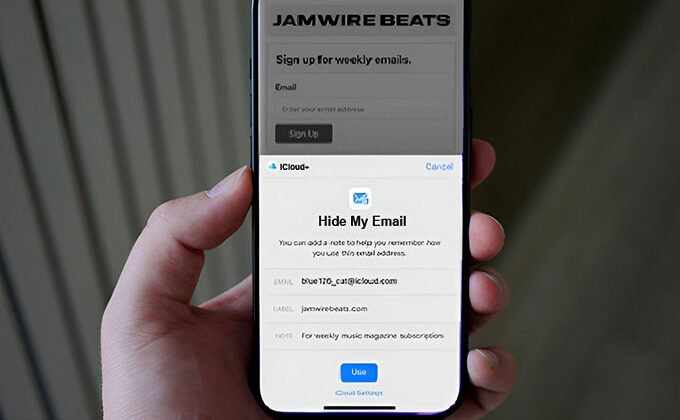There have likely been instances where you needed to appear as if you were in another region and but not actually being in the country. If that’s the case, then you would understand what is a residential proxy. In simple terms, it’s the process of using a residential IP address, which is linked to a specific location around the globe, and utilizing it instead of the real IP address to perform a task online. This way, you appear as if you’re a real resident of the area you reside in, regardless of which one you are physically located to be.
In this article, we’ll discuss what is residential proxies are and how residential proxies function, and the reasons you may have to utilize them. We’ll also discuss the value of proxies when compared to the benefits of a VPN So, keep studying to learn more!
What is a Residential Proxy?
A residential proxy server assigns you an IP address from another location, often from a different region. Instead of routing all of your Internet web traffic to a particular data center, it sends it via an ordinary household connection and makes it appear as if you’re surfing from a different location.
So, what’s the point of this? Residential proxy servers can help keep your identity hidden from Internet service providers (ISPs), access content in only specific locations, and avoid being blocked or identified by websites that do not believe that suspicious or automated activities come from using your actual IP address.
Once you’ve got the definition of residential proxy, we can begin to understand how it functions.
How Do Residential Proxies Work?
A residential proxy serves as a barrier against you as well as the sites you browse. This is the basic idea:
1. Assigning a real IP address
Residential proxy servers assign IP addresses associated with home networks. Since these addresses come from legitimate Internet service providers, websites can recognize them as authentic.
2. Traffic routing
Every time you access a website or application, your visit goes through proxy servers to disguise your real IP address with one that looks more similar to residential IPs than actual addresses. The information that comes from the site is sent back to you via that proxy.
3. The magic works
Websites view your spoofed IP address and believe it’s real and won’t be blocked.
Sounds cool, no doubt. But how can this technique be beneficial to you? We’ll go over the scenarios in the following part.
Also read: 10 Best Proxy Websites in 2025 (Free or Paid)
Common Use Cases for Residential Proxies
Here are a few situations in which residential proxies often play an essential role, both everyday and commercially:
Market price monitoring
Users on Quora have shared their experiences with online stores that have various prices based on the country that you’re visiting. For instance, a product may be priced lower within the U.S. than in Europe. Your IP determines the prices it will show you. Residential proxy networks in various locations allow accurate local pricing without traveling or speculation.
Accessing content restricted to users
Streaming platforms such as Netflix, Hulu, major news channels, and other streaming services might not be available in certain areas. Because some websites restrict IPs from foreign countries, having access to a residential proxy in an appropriate location can allow you to bypass these blocks and appear as though you were physically located there.
Tracking based on the IP address
Each time you log on to the Internet, websites can track your IP address, which can reveal your approximate location and Internet provider. These websites use this information to tailor what you see or to limit access to all websites. Residential proxy servers could give the impression of being at your actual location.
Social media management
If you own more than five accounts on social media platforms like Instagram, Facebook, or Twitter for running advertising campaigns, a residential IP keeps every profile in the dark and lowers the possibility of being flagged. These platforms perceive your accounts as different users working from various locations.
Data collection and Web scraping
Certain platforms and services may limit the sessions, users, or requests made from an IP to prevent misuse. Therefore, if you share Wi-Fi or run an enterprise that has more than one account, you might be blocked even if your actions are legal. With residential proxy servers, you can alter your IP address and access information more securely. This is a great way to help with a variety of tasks, including SEO monitoring to competitor analysis.
Ad verification
In the event that you want to ensure that the advertisements your team is displaying are accurate globally or determine if your competitors are putting shady advertisements in specific regions, such as a residential proxy service for creating a fake location for your business is a great option.
Also read: What is a Discord IP Resolver? Everything You Need to Know
Types of Residential Proxies
Many residential proxy services are the same. Here’s a brief overview of the most important categories and what makes them apart:
Shared residential proxy services
As the name suggests, a residential proxy provides IP addresses that can be shared by multiple users simultaneously. It usually comes with less cost. However, when one person’s actions raise suspicions on the platform, other users (including you) could be affected too.
Dedicated residential proxies
Unlike shared residential proxy IPs that multiple users access, dedicated IP addresses belong only to you. It is often a way to get more performance and fewer blocks. Sounds indeed promising, but be prepared to pay more.
Pros and cons of Residential Proxies
Pros
- Better anonymity and privacy. It’s more difficult for sites and platforms to identify IP addresses that are residential and make them believe that you’re a normal user.
- Bypasses geo-restrictions. Moving using a regional IP within another location can allow you to access content that’s normally not available from your location.
- Less likely to be blacklisted. Compared to a datacenter proxy. Since residential proxies offer home-based IP addresses, websites do not consider them to be bot traffic or other malicious activity.
Cons
- No encryption. Unlike reliable VPN service providers, a residential proxy simply hides your IP. This implies that it does not secure your data while in transit.
- Slowdowns in Internet speed. When you use a residential proxy, you’re traversing an additional node that adds the latency of your connection.
- Higher costs than other proxy services. Real-time home IPs are more complex to manage, and therefore cost more.
- Complexity of configuration. Setting up a residential proxy, or changing it, could require more technical expertise.
In this regard, let’s examine how residential proxies differ from using VPNs because both have similar tasks by obscuring an actual user’s identity and their location they are on the Internet.
Final word
Residential proxies are a powerful tool for anyone who values security, privacy, and access online. These proxy servers utilize real ISP-assigned IPs, making them more trustworthy and difficult to block. Website scraping, SEO tracking, and ad verification to bypass geo-restriction restrictions – their applications can range widely.
Though more costly and sometimes slower than datacenter proxies, anonymity-protection services should only be chosen if anonymity and reliability outweigh speed requirements.















Leave a comment